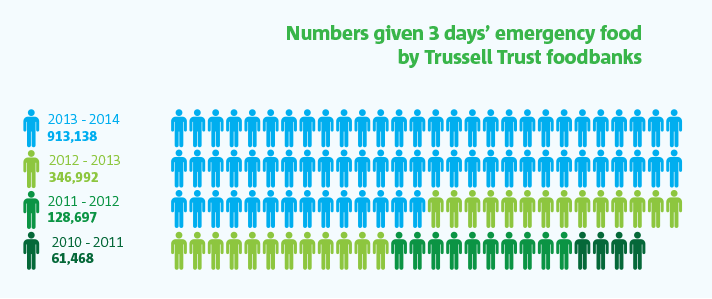
By Ann Marie Foley - 17 April, 2014
More than three quarters of a million people are in poverty in Ireland according to Central Statistics Office figures just published and highlighted by Social Justice Ireland (SJI).
“There are 756,591 people in poverty in Ireland,” according to Dr Seán Healy, Director of Social Justice Ireland.
“The fact that one in six people in Ireland is in poverty is an indictment of Government policy and highlights its failure to protect the most vulnerable.”
He explained that the Government did have choices, but its decisions resulted in 220,411 children (18.8%) living in poverty in Ireland while 68,740 people over 65 are in poverty.
“This is a totally unacceptable situation,” Seán Healy said. “Government decisions also widened the gap between the richest and poorest 20% of the population by over 11% since 2008.”
The SJI director highlighted the fact that the richest fifth of the population maintained their proportion of total equivalised disposable income (they received 39.2% of all disposable income in 2008 and the same in the latest study).
However, the poorest fifth of the population saw their proportion of equivalised disposable income fall by 8% (from 8.6% of all equivalised disposable income in 2008 to 7.9% in the latest study).
Quoting the latest CSO SILC study published on Wednesday, Michelle Murphy, Research and Policy Analyst with Social Justice Ireland, said that since the crash the proportion of people in consistent poverty has risen by 83% (some 4.2% of the population were in this situation in 2008 compared to 7.7% according to the new study).
She also highlighted that there is a working poor problem with 6% of all those with a job living in poverty while more than a third of those who are unemployed are in poverty.
Michelle Murphy pointed out that even though the poverty line fell by 15% since 2008, the proportion of Ireland’s population below this lower poverty line has risen by 15% during the same period.
In the UK, faith leaders have told the Government that hunger is a “national crisis”.
More than 40 Anglican bishops and 600 church leaders signed a letter calling on David Cameron, Nick Clegg and Ed Miliband to tackle the causes of food poverty.
 The letter, the second of its kind in as many months, stated that for people of all faiths Lent has been a time of “sorrowful and deep reflection” on the terrible increase in hunger in Britain.
The letter, the second of its kind in as many months, stated that for people of all faiths Lent has been a time of “sorrowful and deep reflection” on the terrible increase in hunger in Britain.
The religious leaders continued: “Hope is not an idle force. Hope drives us to act. It drives us to tackle the growing hunger in our midst. It calls on each of us, and Government too, to act to make sure that work pays, that food markets support sustainable and healthy diets, and that the welfare system provides a robust last line of defence against hunger.”
The letter has been described as the biggest ever Christian intervention on UK food poverty in modern times.
Its publication coincides with Trussell Trust statistics which show that over 900,000 people received three days’ emergency food aid in the 2013/14 financial year, nearly triple the number helped in the previous year and the biggest rise ever recorded.
Letter signatories include the Archbishop of Wales and leaders from every major Christian denomination in the UK including Anglican, Catholic, Evangelical Alliance, Methodist, Baptist and United Reform Church.
Faith leaders are growing increasingly concerned at the inaction by the politicians to protect the poorest and most vulnerable in society.
The Government has yet to act on the original letter signed by 27 bishops in February 2014.
The Archbishop of Westminster, Cardinal Vincent Nichols, warned at the time that welfare reform was leaving people in “destitution” and labelled it a “disgrace”.